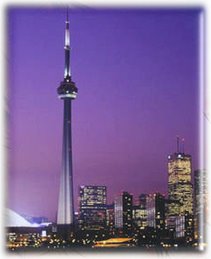There are thousands of them in Canada. They're called IMGs, international medical graduates - trained doctors whose degrees are not recognized in this country. Consequently, many are going to the United States. This group, which has been estimated at 7,000 doctors, has long been touted as a solution to the shortage of doctors in Canada. But many who come here to practise still find themselves left idling outside the health-care system, as tough licensing standards and limited resources for training and support make finding a position in Canada a tedious, drawn-out process. In 1993, when there were only 24 residency positions available for such doctors in Ontario, Dr. Abera Abay, an Ethiopian-trained gastroenterologist, found he could go no further. Although he wanted to make Canada his home, Abay ended up finding success south of the border. He applied for his first American test in March 1994 and, by July 1995, was in an American residency program after attracting the attention of the Beth Israel Medical Center in Manhattan, where he was recognized as resident of the year in 1998.
"Getting the (visa) paper was way harder than passing the exams," he remembers. He is now in a successful practice in Connecticut. "I'm doing extremely well financially and in my profession here, so it's not a case of trying to protect the public," he said of Canada's application process for foreign doctors. "It's a case of bad judgement and protecting their own turf." Abay said he and his Canadian wife have thought of moving back even after spending years "chasing the Canadian system," but with at least two exams waiting for him, this seems unlikely. "Foreign graduates now know it's practically impossible to practise in Canada," he said. Dr. Asmat Khan decided to stick it out in Canada. But it took him 11 years. "I feel I'm a test case, because I got here in 1994 and only got to work in 2005," he said. "Every year I got accepted to the United States. Maybe I was stupid. Maybe I was too loyal to Canada." Khan has worked in psychiatry in Ottawa since 2005. He struggled to practise in this country, even after being accepted in the U.S., although with a Pakistani medical degree, it took seven exams and changing from his original neurosurgery specialization. Khan, 42, describes those years in limbo as very difficult for his family, when he only managed to find volunteer work. He said he doesn't understand the element of resistance he sees to foreign-trained doctors in Canadian medicine, given the high standards to which immigrants to Canada are subject. He said in their home countries, they're usually in the top two per cent of their schools. Even though IMG candidates applying in the U.S. are subject to a similar range of exams and standards, administered by organizations like the Educational Commission for Foreign Medical Graduates, foreign-trained doctors in Canada often benefit from the sheer size of the health system in the United States. Arber Zaplluzha of Ottawa's Catholic Immigration Centre runs a program that aims to help foreign-trained doctors find medical work. He said he sees many turn to the American system after having difficulties in this country.
"Getting the (visa) paper was way harder than passing the exams," he remembers. He is now in a successful practice in Connecticut. "I'm doing extremely well financially and in my profession here, so it's not a case of trying to protect the public," he said of Canada's application process for foreign doctors. "It's a case of bad judgement and protecting their own turf." Abay said he and his Canadian wife have thought of moving back even after spending years "chasing the Canadian system," but with at least two exams waiting for him, this seems unlikely. "Foreign graduates now know it's practically impossible to practise in Canada," he said. Dr. Asmat Khan decided to stick it out in Canada. But it took him 11 years. "I feel I'm a test case, because I got here in 1994 and only got to work in 2005," he said. "Every year I got accepted to the United States. Maybe I was stupid. Maybe I was too loyal to Canada." Khan has worked in psychiatry in Ottawa since 2005. He struggled to practise in this country, even after being accepted in the U.S., although with a Pakistani medical degree, it took seven exams and changing from his original neurosurgery specialization. Khan, 42, describes those years in limbo as very difficult for his family, when he only managed to find volunteer work. He said he doesn't understand the element of resistance he sees to foreign-trained doctors in Canadian medicine, given the high standards to which immigrants to Canada are subject. He said in their home countries, they're usually in the top two per cent of their schools. Even though IMG candidates applying in the U.S. are subject to a similar range of exams and standards, administered by organizations like the Educational Commission for Foreign Medical Graduates, foreign-trained doctors in Canada often benefit from the sheer size of the health system in the United States. Arber Zaplluzha of Ottawa's Catholic Immigration Centre runs a program that aims to help foreign-trained doctors find medical work. He said he sees many turn to the American system after having difficulties in this country.



No comments:
Post a Comment